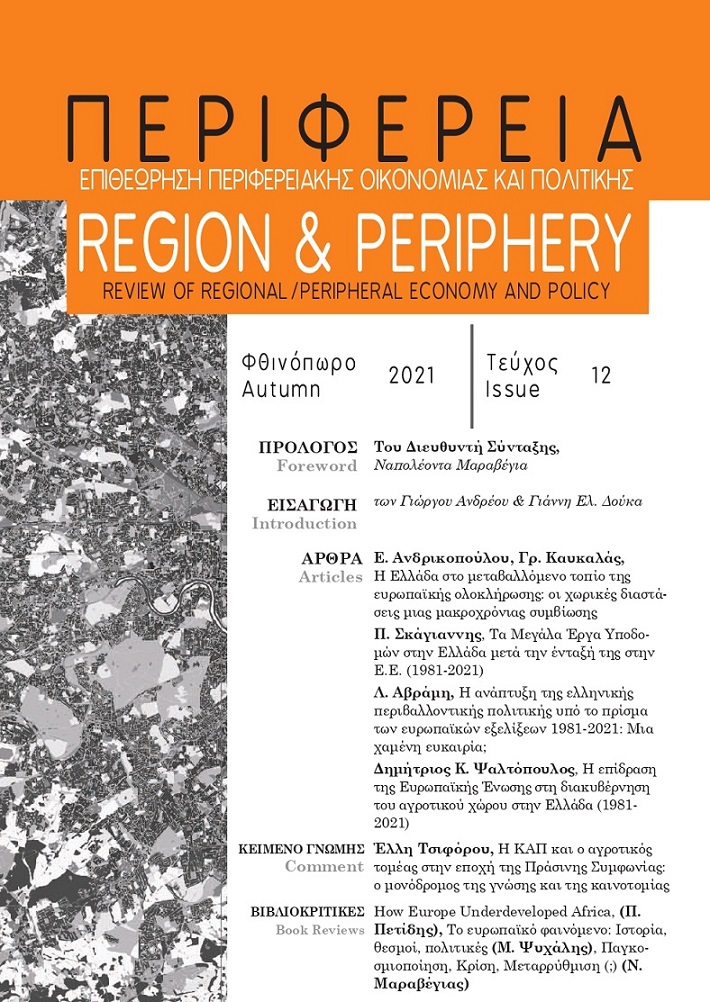The infl uence of the European Union on rural governance in Greece
Abstract
EU rural areas still face several complex economic, environmental and social challenges. At the same time, policy makers face an extremely heterogeneous context with different characteristics, advantages and needs. The reforms of the Common Agricultural Policy and the process of European integration have diversified the traditional mix of public intervention and currently aim at a rural
space development approach, which has the potential to promote the necessary structural transformation in EU rural areas. However, the implementation of this new approach requires new rural governance mechanisms governed by the
principles of coordination, multidisciplinary targeting, and effective partnerships. Despite the significant resources made available by agricultural and structural policy, the model of rural governance in Greece is characterized by significant deficiencies and does not correspond to a modern approach to governance. These problems are multidimensional and concern development planning and implementation, as well as the operational and organizational capacity of the
competent public and private bodies. There are good practices, but their impact is rather marginal, while the analysis presented in this paper highlights the need to modernize and streamline the system of rural governance in Greece.
Article Details
- How to Cite
-
Psaltopoulos, D. K. (2021). The infl uence of the European Union on rural governance in Greece. Perifereia | Regional Integration: Politics, Economics, Governance, 12(12), 99–122. https://doi.org/10.12681/rp.28889
- Section
- Research Articles

This work is licensed under a Creative Commons Attribution-NonCommercial 4.0 International License.
Authors who publish with this journal agree to the following terms:
· Authors retain copyright and grant the journal right of first publication with the work simultaneously licensed under a Creative Commons Attribution Non-Commercial License that allows others to share the work with an acknowledgement of the work's authorship and initial publication in this journal.
· Authors are able to enter into separate, additional contractual arrangements for the non-exclusive distribution of the journal's published version of the work (e.g. post it to an institutional repository or publish it in a book), with an acknowledgement of its initial publication in this journal.
· Authors are permitted and encouraged to post their work online (preferably in institutional repositories or on their website) prior to and during the submission process, as it can lead to productive exchanges, as well as earlier and greater citation of published work.



